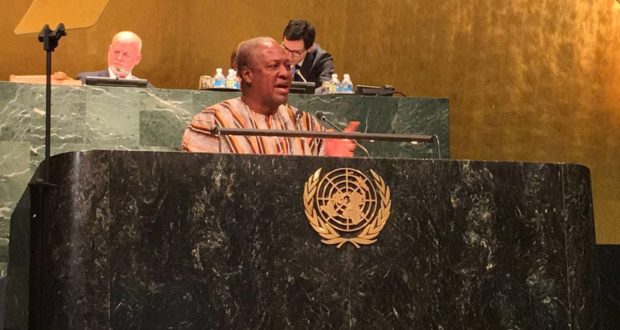President John Mahama has called for a concerted global effort to tackle terrorism, which he described as “one of the greatest threats to world peaceâ€.
Addressing the 71st Session of the United Nations General Assembly in New York, USA, Wednesday, the president said no part of the world citing the activities of Boko Haram which he said had displaced millions of people and claimed thousands of casualties.
He said attacks in Mall, Burkina Faso and Cote D'lvoire also show  that all countries are at risk.
President Mahama stated that while the threat of terrorism was very grave and must be tackled, the solution was not to “shut our doors to foreigners who may have genuine cause for visiting- for tourism, for business, for sanctuary as refugeesâ€.
“That is what the terrorists would want to us to do - to instil fear and panic in order that we shut our doors on the rest of the world,†he said.
He expressed Ghana’s solidarity with countries that have experienced terrorism recently such as Bangladesh, Belgium, France, Germany, Indonesia, Lebanon, Pakistan, the Russian Federation, Turkey and the United States of America.
“No! We must not give in to them. The terrorists must not win and they will not win,†he said.
President Mahama also called for the problem of illegal migration to be tackled by the reordering of economic relations between Africa and the West.
He said with Africa boasting a significant share of the world's arable lands, a youthful labour force, and a significant share of the world's natural resources, a reordering of economic relations could create boundless opportunities that would keep young Africans at home.
The president said removing subsidies to farmers of the advanced world, for instance, would create an even
playing field for African farmers to compete.
“Removing revenue and non-revenue barriers to African produce would give African agriculture a fighting chance,†he added.





